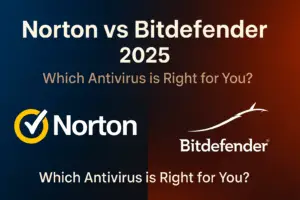Windows 11 Antivirus Kernel Changes — What This Means for You (2025 Update)

🔰 Introduction
Microsoft has quietly made one of the most significant changes to how antivirus software works on Windows in years — and most people haven’t even heard about it yet.
With its latest Windows 11 updates, Microsoft is removing antivirus software’s access to the system kernel, a powerful part of the operating system that security programs have relied on for decades. This shift might sound technical (and it is), but its implications could impact how your PC stays protected, especially if you use third-party antivirus solutions.
In this article, we’ll break it down:
What this kernel-level change actually means
Why Microsoft is doing it
Which antivirus tools are affected
And whether or not you need to take action in 2025
🧠 What Is the Kernel — and Why Does It Matter to Antivirus?
In simple terms, the kernel is the core brain of your computer’s operating system. It manages hardware communication, system processes, and memory — think of it as the central control room for everything your PC does.
For years, antivirus programs have used kernel-level drivers to monitor system behavior closely and block threats before they cause damage. This deep-level access allowed AV tools to scan files in real-time, intercept malware early, and protect your system effectively.
But here’s the catch: when antivirus drivers go wrong — whether due to bugs, outdated code, or compatibility issues — they can cause serious problems like:
Blue screens of death (BSOD)
Crashes during Windows updates
System lag or instability
And these issues were happening more often than Microsoft was comfortable with.
⚙️ What’s Changing in Windows 11 (2025)
Starting with build updates rolling out in mid-to-late 2025, Microsoft is:
Restricting AV software from installing kernel-mode drivers
Requiring AVs to run in user mode instead, a more controlled layer
In other words: your antivirus software can no longer directly tap into the Windows kernel.
This change is being rolled out gradually with full implementation expected across all new builds of Windows 11 by early 2026.
🛡️ Why Is Microsoft Doing This?
The main reason is system stability.
Microsoft has made it clear that driver-level AV tools have been one of the top causes of Windows crashes over the past few years. By limiting kernel access, they’re reducing risk and making sure your PC runs more reliably — especially during updates.
Other key benefits include:
🔒 Reduced attack surface for malware authors
⚡ Faster performance, fewer interruptions
🤖 Better compatibility with AI-based system optimization tools
And they’re not doing it alone. Microsoft has partnered with major antivirus companies to roll this out smoothly.
🤝 Antivirus Companies Working with Microsoft
These trusted antivirus providers are already building user-mode compatible versions of their software:
| Antivirus Brand | Status in 2025 |
|---|---|
| Bitdefender | Beta testing user-mode version |
| ESET | Announced full support for kernel shift |
| Trend Micro | Partnered with Microsoft to lead rollout |
| CrowdStrike | Already operates fully in user mode |
| McAfee & Norton | No public announcements yet but expected to comply |
So if you’re using one of the above tools — especially Bitdefender, ESET, or Trend Micro — you’re in good hands.
⚠️ Do You Need to Do Anything as a User?
For most users, no immediate action is needed. But here are a few smart steps:
✅ Update your antivirus regularly — outdated versions may not be compatible with upcoming kernel changes
✅ Avoid cracked or unofficial AV software — these often rely on outdated kernel access and may stop working
✅ Keep Windows updated — the changes roll out through Windows Update
✅ Check if your antivirus has published any guidance for the Windows 11 transition
If you’re using a lesser-known antivirus tool, you might want to switch to a trusted, Microsoft-approved AV that’s working on these changes.
🟢 Pros and Cons of This Kernel Restriction
| ✅ Pros | ❌ Cons |
|---|---|
| Improved system stability | Some legacy antivirus tools may stop working |
| Less chance of BSODs during updates | May reduce deep behavioral monitoring capabilities |
| Faster Windows performance | Could lead to confusion during transition phase |
| Increased malware resistance | Users must rely on AV vendors to keep up |
📌 Expert Quote (from The Verge)
“Microsoft is fundamentally shifting how AV vendors interact with the OS. The goal is less friction, better performance, and less chaos during updates.”
– The Verge, June 2025
🧭 Final Thoughts: Good News in the Long Run
This move by Microsoft might feel like a limitation, but it’s ultimately a win for both security and user experience. Antivirus vendors are already adapting, and users will likely experience fewer interruptions, crashes, and update issues.
If you’re using a well-supported AV brand in 2025, you’re already protected — and probably better off than before.
But it’s more important than ever to stay informed and updated, because cybersecurity is evolving fast.




